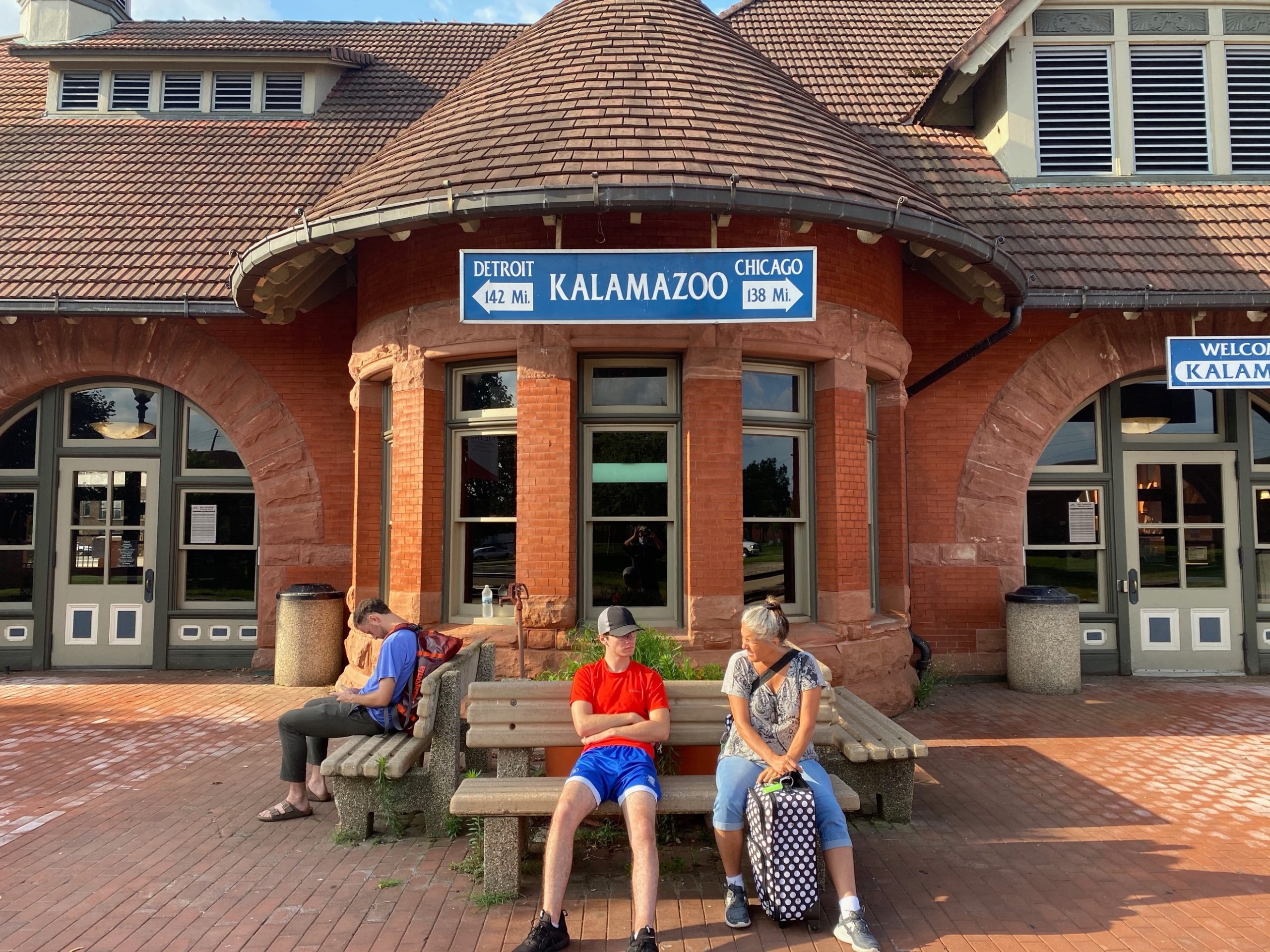Kalamazoo, Michigan: You have to be blind to believe the US economy is rebounding sharply from the coronavirus lockdown. There is no V-shaped recovery. At best, it’s a U, with business activity mucking along the horizontal bottom of the U.
Over seven late-July days travelling in the Midwest, I visited places where commerce was just barely ticking over. City centres in Cleveland, Detroit, Grand Rapids and Kalamazoo are largely empty, at best 20% to 30% of normal.
Most restaurants and many retail outlets remain closed. If they have reopened there’s little business. Parking is easy because many who are working do so from home. Local government offices are either closed or operating at minimal capacity.
In Kalamazoo, along what 60 years ago was America’s first pedestrian shopping mall, nearly half of 64 downtown businesses say if current conditions persist they may have to close for good. Ninety-five percent are losing money and 80% have received some form of government financial support.

Three hours west, in Chicago, 4 400 businesses have closed in the past two months.
Not surprisingly, the hardest-hit sectors are travel, hospitality and retail. Detroit’s usually crowded Metro Airport is struggling, recovering slowly from a 94% drop in traffic in April. Nationwide air travel is down 75%, a drop so severe that 3 000 passenger jets have been grounded. The air travel collapse creates ripples – to rental cars, restaurants, hotels, taxis and ride-sharing.
Bankrupt
Number two car rental company Hertz is bankrupt and selling thousands of vehicles, putting downward pressure on used-car prices. New-car sales in June were down 30%, bad news for Detroit, still the nation’s automobile capital.
The pandemic-induced disruption extends to unexpected places. Hospitals aren’t getting the elective surgeries and visits they anticipated. Kalamazoo’s main hospital says revenue is down 50%, and hundreds have been laid off. There have been pay cuts. People are afraid to visit doctors’ offices. At Ann Arbor’s University of Michigan medical centre, which employs 26 000, the billing department staff of over 500 has been told to work from home indefinitely.
Working from home has triggered huge gains for internet-related companies, but what about those dependent on commuting and offices? NPR’s listening audience has fallen sharply because people aren’t in their cars. West Michigan-based Steelcase and Herman Miller, major suppliers of office furniture, are suffering despite Miller’s CEO’s confidence that ‘the office is not going away’.
For small business, the current downturn is a depression, certainly worse than the great recession of 2008/09. The economy on a quarterly basis declined 10% from April to June.
Data suggests it would have been worse without financial support from the Federal Reserve and emergency government spending.
Economists at the University of Chicago and the JP Morgan Chase Institute say the bulk of the recent recovery in consumption comes from the unemployed spending their enhanced jobless benefits, while those employed are saving more and spending less. Fed chief Jay Powell calls the coronavirus disruption ‘the biggest shock in living memory’. The recession, he says, has wiped out the job gains of the past decade, while the International Monetary Fund warns that ‘a premature withdrawal of fiscal support could derail the recovery’.
Winners
To be sure, there are winners from the health emergency. UPS and Amazon are thriving in the Midwest, as they are all over the country. Big pharma Pfizer, a major employer in Kalamazoo, is ramping up its local facilities to mass-produce coronavirus vaccines that are already undergoing human trials.
Recently both Michigan and Ohio have done relatively well in dealing with the virus. Each state has about 80 000 cases, but the death toll is greater in Michigan, with 6 000 deaths compared to 3 100 in Ohio. Nationwide, at the end of July, America registered over 150 000 deaths from the virus and 4.4 million cases.
I found people taking the virus seriously. They’re wearing masks and maintaining safe distances, and are generally optimistic about the future. Shanghai-born Charles Zhang, whose Kalamazoo investment firm is ranked among the best in the country, says west Michigan’s future is exceedingly bright, that the region will not only recover quickly but thrive once a vaccine is available.
The views of the writer are not necessarily the views of the Daily Friend or the IRR
If you like what you have just read, subscribe to the Daily Friend

